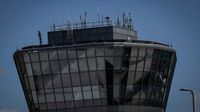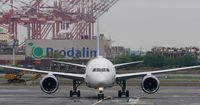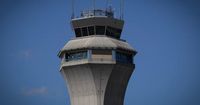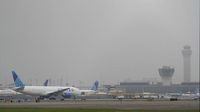Radar screens at Newark Liberty International Airport went black early Friday morning, May 9, 2025, raising urgent concerns about air traffic safety at one of the nation’s busiest hubs. The Federal Aviation Administration (FAA) confirmed that the outage occurred at 3:55 a.m. and lasted approximately 90 seconds, impacting communications and radar displays at the Philadelphia Terminal Radar Approach Control (TRACON) facility, which oversees air traffic in and out of Newark.
During the blackout, air traffic controllers communicated with pilots, including a FedEx flight, informing them that their "scopes just went black again." One controller advised an arriving private jet from Cyprus to maintain an altitude of at least 3,000 feet in case of further communication issues. This latest incident follows a similar radar outage just days earlier, which had already caused significant disruptions.
Last week, on May 5, another outage at Newark resulted in air traffic controllers losing radar and radio signals for nearly the same duration, prompting a temporary halt of departures. The experience left several controllers traumatized, leading them to take medical leave under the Federal Employees Compensation Act. Controllers are entitled to at least 45 days away from their duties and must be evaluated by a doctor before returning to work.
Newark has been facing a persistent staffing shortage among air traffic controllers, which has exacerbated delays and cancellations at the airport. Over the past two weeks, these staffing issues have contributed to a chaotic travel environment, with reports indicating that about 10% of flights to and from Newark were canceled from the start of last week through Wednesday, May 7.
Congressman Josh Gottheimer held a press conference on Friday, demanding immediate action to address the air traffic control crisis. He stated, "The airport simply lacks the FAA tower staffing levels, modern technology, and infrastructure that we need to ensure that this airspace, the busiest airspace in the world, runs efficiently, smoothly, and safely." Gottheimer's concerns echo those of many travelers who have expressed frustration over ongoing delays and cancellations.
In response to the crisis, U.S. Transportation Secretary Sean Duffy announced a comprehensive plan to modernize America’s air traffic control system. This ambitious proposal, which could take three to four years to complete and cost approximately $15 billion, includes replacing outdated telecommunications with new fiber, wireless, and satellite technologies, installing modern hardware and software, and constructing six new air traffic control centers.
However, the upgrades must be executed while still relying on the existing, outdated system, which poses its own set of challenges. Duffy emphasized the urgency of the situation, stating, "We are on it. We are going to fix it. We are going to build a brand new system for all of you and your families and the American people." This plan requires congressional approval, which is still pending.
White House Press Secretary Karoline Leavitt addressed the recent outage, confirming that it was caused by the same telecom and software issues that affected Newark last week. She assured reporters that the FAA and the Department of Transportation are working diligently to resolve these technical problems and prevent further outages. The goal is to complete the installation of new fiber optic cables from Newark to Philadelphia by the end of summer.
The persistent outages have raised alarms not just among travelers but also aviation experts. A veteran air traffic controller described the current situation as getting worse by the day, stating, "It’s a s--- show. There’s new stuff every day. We work with a monkey on our back, knowing our equipment is not reliable." This sentiment underscores the critical nature of reliable radar access, as any moment without it can have dire consequences for air traffic safety.
In the wake of these incidents, United Airlines, which operates a significant number of flights at Newark, announced that it would unilaterally cancel 35 round-trip flights per day from its schedule. CEO Scott Kirby expressed disappointment over the need for further cuts, stating, "It's disappointing to make further cuts to an already reduced schedule at Newark, but since there is no way to resolve the near-term structural FAA staffing issues, we feel like there is no other choice in order to protect our customers."
American Airlines echoed similar frustrations, highlighting the urgent need for improved staffing and modernization of the air traffic control system in light of ongoing challenges at Newark.
As Newark Liberty International Airport grapples with these systemic issues, the FAA faces increasing pressure to implement effective solutions. The recent outages, coupled with ongoing runway construction and staffing shortages, have created a perfect storm of challenges that have left travelers and airlines alike frustrated. With the Transportation Secretary's modernization plan on the table, stakeholders are hopeful that meaningful progress will be made to address the long-standing issues that have plagued Newark and the broader air traffic control network.







